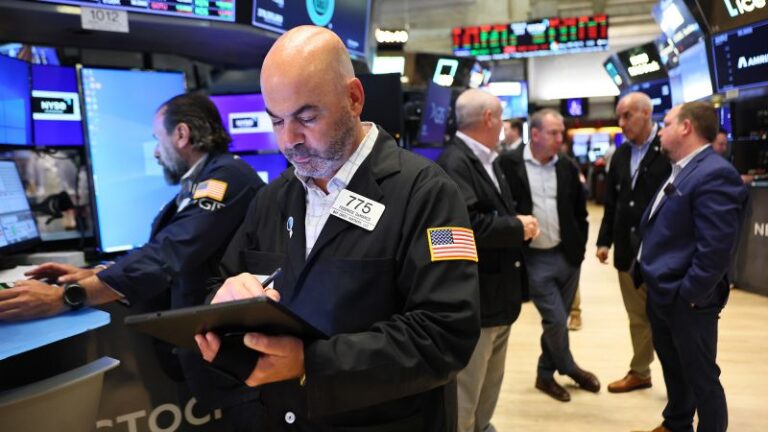CNN
—
Investing in US markets lately is akin to spinning plates while riding a unicycle balanced on a bowling ball. Traders have to contend with rapidly changing tariffs, mixed economic signals, uncertainty over rates and now an escalating conflict in the Middle East.
So you might assume that the United States’ historic strikes on three Iranian nuclear facilities over the weekend would send stocks lower and oil prices higher, for fear of retaliation and a potential Iranian blockade of the Strait of Hormuz, a critical shipping lane through which about a fifth of the world’s oil flows. Yet stocks are basically flat. Oil gave up most of its earlier gains. Bonds are quiet.
What’s going on?
Investors are maintaining their balancing act: It’s just not clear what happens next — or what position to take. If the US and Israeli strikes are largely over, and Iranian retaliation is muted, this could be a net positive for markets, lessening volatility and the threat of a nuclear-armed Iran. If the conflict escalates — particularly if Iran cuts off oil supplies to the West — that, combined with a growing trade war, could reignite inflation and a global recession.
In the meantime, with equal bets on both sides of the argument, Wall Street trades are barely budging.
“So far, so muted,” said Kit Juckes, chief FX strategist at Societe Generale. “Mostly, we will be waiting for any communications from Ayatollah Khamenei, or any other indications of retaliation.”
The Dow dropped lower by around 140 points, or 0.3%, early afternoon Monday on reports that Iran had retaliated. The S&P 500 and Nasdaq Composite were both down by around 0.03%. CNN’s Fear and Greed Index, which measures market sentiment hovered in Neutral.
Oil prices turned solidly negative Monday as energy markets shrugged off the risk that the US strikes on Iran leads to even more instability in the region. US oil spiked as much as 6.2% on Sunday night, briefly touching $78.40 a barrel. However, that rally proved short-lived as oil futures have since gone into the red. As of 10:40 a.m. ET, US crude was down about 1% to $73.15 a barrel. Brent, the world benchmark, also fell about 1% after having surged Sunday night.
Bob McNally, president of Rapidan Energy Group, told CNN that oil markets are waiting for evidence of an actual disruption.
“Traders have seen a lot of false alarms when it comes to geopolitical disruption risk in the oil market,” McNally said. “Unless there’s a material interruption in gulf energy, production, or flows, I think any further spikes will be contained.”
Safe-haven trades, which tend to boom in times of global strife, were muted: Gold fell 0.1% to $3,380 a troy ounce. Treasury yields were barely changed.
The dollar, by contrast, gained 0.7%. America’s currency has tumbled after the Trump administration put in place historic tariffs on foreign imports as investors feared a looming inflation-induced economic downturn. The dollar, widely referred to as the world’s reserve currency, tends to rally in times of global unease and conflict, but some market observers questioned if that would happen again under Trump’s “America First ” policies.
It’s not clear that fear of conflict in the Middle East is lifting the dollar, though — it is more likely getting a boost from higher oil prices, since oil globally is traded in dollars.
“While the broader bias still leans toward structural dollar weakness, escalating Middle East tensions are injecting support for the greenback via the commodity channel,” said George Vessey, lead FX and macro strategist at Conerva, in a note to investors Monday morning. “That channel will remain central in the days ahead, as Iran — according to state-run TV — has vowed to retaliate by closing the Strait of Hormuz.”
So there’s a risk that an escalation sends oil and gas prices surging and the economy slowing just as higher global tariffs kick in. The Federal Reserve may be hamstrung if inflation surges, unable to lower its key interest rates that tend to lift the economy and markets.
But Wall Street traders currently believe there’s an equal chance that the worst of the Middle East conflict is now over. More trade deals could be on their way soon. And the Fed could cut rates later this year — maybe even twice.
In the meantime, Wall Street is acting like it went to bed Friday, slept straight through the weekend and woke up Monday morning as if nothing happened.
